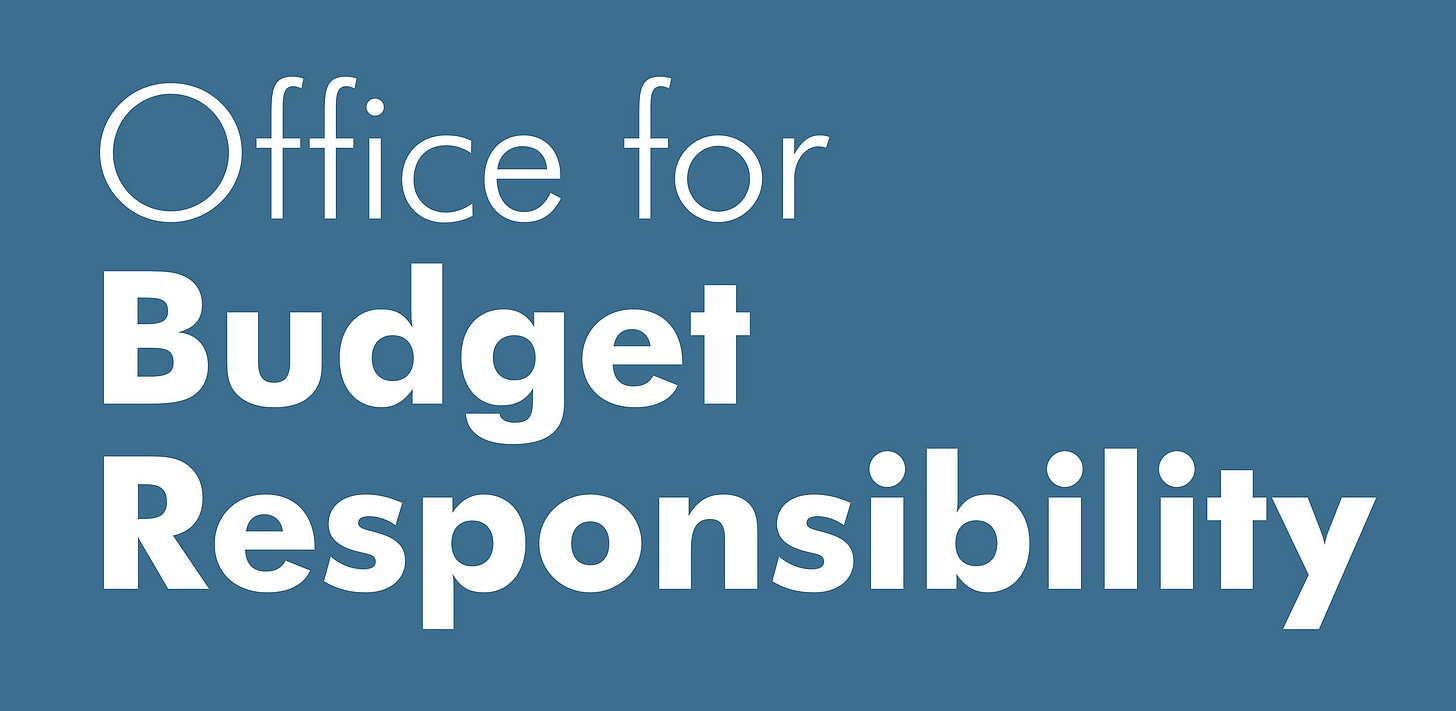You're going to need a bigger buffer
To curb the power of the OBR, Rachel Reeves must first bow to fiscal reality
Let’s start with a game of ‘Would You Rather,’ shall we? Would you rather always be 10 minutes late or 20 minutes early? Would you rather have spaghetti for hair or sweat maple syrup? And would you rather have a large parliamentary majority or a substantial budget surplus?
That last one is something of a trick question, because Labour is governing as if it possesses neither a commanding majority nor any money. And only one of those things is actually true. The result is that a government that could be wielding its power is letting others dictate terms. Unsurprisingly, things are not going all that well.
A fiscal watchdog is born
The Office for Budget Responsibility (OBR) was established by George Osborne in 2010 to deprive ministers of “the temptation to fiddle the figures”. Previously, the Treasury produced its own economic and fiscal forecasts, which were not always terribly accurate. Partly because making estimates about a $3 trillion economy is inherently difficult, but also because forecasts were driven by what the Institute for Government called “a degree of politically motivated wishful thinking.”
The fiscal watchdog has only grown more powerful in recent years. This is in some ways an expected development, as the OBR becomes ever more embedded in the policymaking process. Consider that another key cog in the financial wheel — the Bank of England — was founded not as a central bank in the modern sense, but as a private institution to lend money to the government to fund war with France. Only later did it begin to act as a lender of last resort, before formally being nationalised in 1946.
Of course, the OBR has enjoyed some unintentional assistance in recent years. Its reputation was burnished following the disastrous 2022 mini-Budget, which spooked the markets not simply because of its £45bn in unfunded tax cuts, but because the chancellor had declined the fiscal watchdog’s offer to provide updated forecasts. Presumably on the basis that their judgement would not have been wholly complimentary.
Its power was further strengthened by Labour, which early on passed a law to ensure that future fiscal events could not take place without an OBR forecast. This was all part of the new government’s plan to remind voters of the Conservatives’ economic malpractice and reassure the bond markets. But taken together, they have shifted the centre of political gravity.
“You’re gonna need a bigger boat”
At both the 2024 Autumn Budget and this year’s Spring Statement, Rachel Reeves left herself a mere £9.9bn margin — also known as headroom — against her fiscal rules, which mandate that she bring the current budget into surplus by 2029-30.
Notwithstanding global economic headwinds and unhappy backbench MPs, £9.9bn is the equivalent of trying to catch a flight by leaving only as much time as Citymapper tells you it will take to get to the airport — and barely a second more. Try this and of course, things are bound to go wrong.
Keep reading with a 7-day free trial
Subscribe to Lines To Take to keep reading this post and get 7 days of free access to the full post archives.



